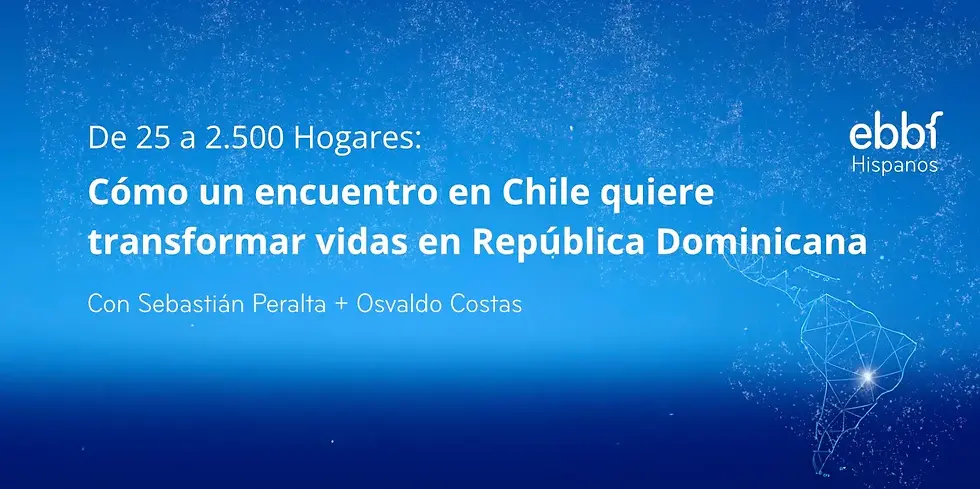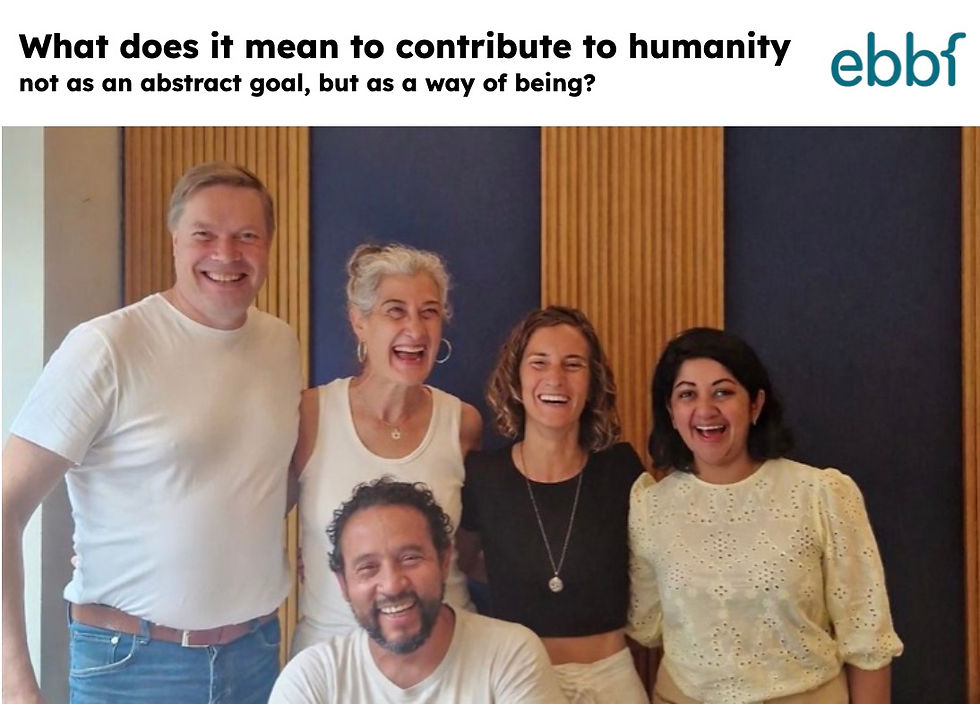#ebbfdiversity presenter Gijs van de Fliert : Beyond Diversity – True Diversity
- Mar 1, 2017
- 3 min read
Eighteen years ago, a dialogue was held among the world’s faith and the development community, hosted by the President of the World Bank and the Archbishop of Canterbury at Lambeth Palace. Its theme was about the “Creation of Spiritually Based Indicators for Development.” A working group of the Bahá’í Faith prepared a concept paper for this dialogue, entitled “
Valuing Spirituality in Development.” [amongst them this ebbf event speaker Arthur Dahl]
The first principle in that paper was that of “Unity in Diversity” and it noted that the idea of developing spiritually based indicators for development was timely and to have spiritual values and principles seriously considered in the development arena. Now 18 years later much of the above dialogue outcome seemed to have been lost in the shovel. The paper asserted that to use spiritually based indicators, it must have its foundation in the application of universal spiritual principles.
The concept paper defines the concept of “Unity in Diversity” as a way of expressing the principle of the oneness of humanity. It further states:
“…Unity in diversity stands in contrast to uniformity. It cherishes the natural diversity of temperament and talents
… among individuals as well as humanity’s variegated experiences, cultures and viewpoints, inasmuch as they contribute to the human family’s progress and well-being. Much like the role played by the gene pool in the biological life of humankind and its environment, the immense wealth of cultural diversity achieved over thousands of years is vital to the development of the human race which is experiencing its collective coming-of-age. It represents a heritage that enriches us all and that must be permitted to bear its fruit in a global civilization. Acceptance of the concept of unity in diversity, therefore, implies the development in the individual of a global consciousness, a sense of world citizenship, and a love for humanity as a whole. In this regard, each individual needs to understand that, since the body of humankind is one and indivisible, each member of the human race is born into the world as a trust of the whole and that the advantage of the part in a world society is best served by promoting the advantage of the whole.”
In particular, from the above, I like to highlight the referenced aspect of “natural diversity of temperaments and talents among individuals as well as humanity’s variegated experiences, cultures and viewpoints.” You will note there is not a single reference to the mostly used diversity indicators by governments and institutions, which are based on physical attributes of a human beings.
At the end of the above quote, it says that “each member of the human race is born into the world as a trust of the whole and that the advantage of the part in a world society is best served by promoting the advantage of the whole.” As such, this principle of “Unity in Diversity,” if applicable to the whole must likewise be applicable at the level of the organization and management of institutions, companies, and communities, we work, associate with, and live in.
As part of a Learnshop at the
ebbf‘s Geneva annual conference in May 2017, we will explore how such a spiritual principle, when applied, might change our perspective on the organizations and communities we are associated with. Also, how might applying such a spiritual concept change the way we have traditionally worked and measured key indicators of diversity. Hence my reference to “True Diversity.”
Lastly, you should know that I am neither trained in social sciences, nor an academic on this and related subjects. I am merely trained in mechanical engineering, and a student of life, who spent his working time with institutions in development finance and risk management. So I am looking forward to diverse ideas and thoughts from your individual perspectives to bring about “True Diversity.”







Comments